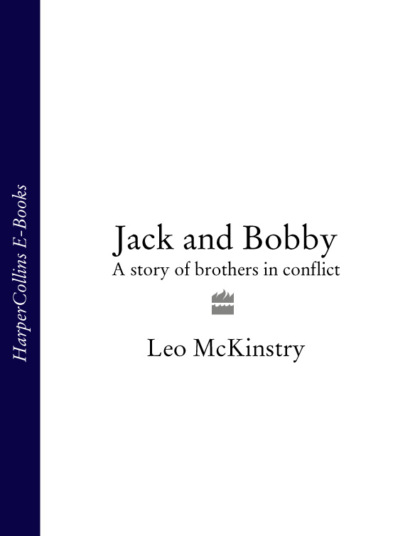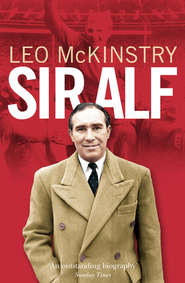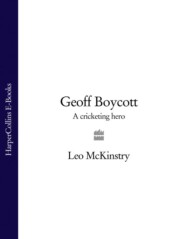По всем вопросам обращайтесь на: info@litportal.ru
(©) 2003-2024.
✖
Jack and Bobby: A story of brothers in conflict
Настройки чтения
Размер шрифта
Высота строк
Поля
It was on the evidence of his form in Belgrade that the selectors took the strange decision to drop him from the England team during the World Cup finals in Sweden in 1958. England subsequently did not win a single game and came home after failing to progress from their qualifying group, while both Wales and Northern Ireland reached the quarter-finals. The decision to leave out Charlton for all the games provoked a national outcry. It was the biggest controversy about England’s participation in the 1958 competition. Yes, Bobby was inexperienced, youthful and inconsistent, but he could also turn a game in a single move. In contrast, the man that the selectors clung to up front, the West Brom striker Derek Kevan, lacked all such daring and creativity. He was just another heavyweight of a League centre-forward, whose nickname ‘The Tank’ was all too indicative of his inelegant approach.
England supporters of every age simply could not understand how a struggling side could take the field without Charlton. When the England manager Walter Winterbottom arrived back at Heathrow after the World Cup, he was met by his wife, daughter and son. He put his arm round his wife and kissed her, and did the same to his daughter. With his son, he thought a more masculine greeting would be appropriate, so he stretched out his hand. But his son refused to take it. Instead, he just scowled and put the question the whole nation was asking: ‘Why didn’t you choose Bobby Charlton?’ In the Daily Express, Desmond Hackett spoke for many when he expressed outrage at the action of the selectors. ‘I want to know what every football fan in England wants to know. Why was Charlton missing from an England team that demanded a player who could shoot? I accuse the England selectors and team manager Walter Winterbottom of deliberately killing the individual talents of the players they took with them.’ Hackett went on to explain that the line from the selectors was that ‘Bobby Charlton was not a 90-minute player, that he was, in fact, a slacker’.
In view of Charlton’s subsequent career, it seems an extraordinary criticism. In the 1960s and early 1970s, he was always seen as the model professional, who would never stop running for his side. In fact, the biggest complaint against him was that, far from being a ‘slacker’, he wanted to be involved too much. Nevertheless, this was the view of the England decision-makers in 1958. He was a lightweight, unable to contribute more than the occasional spectacular shot. There is a fascinating passage in the 1960 book Soccer Partnership, written with the co-operation of Winterbottom and Billy Wright, in which the case against Bobby Charlton is spelt out clearly. The English vice of emphasizing hard work rather than flair is all too apparent in these words: ‘Even against Portugal, when he scored both of England’s goals, little was seen of Charlton as a footballer helping his team and being part of the team effort. He did not feature in progressive, linked movements and his defensive play was non-existent. People who watched him closely concluded that he was immature and by no means of international standards.’ Turning to the World Cup in Sweden, the book states: ‘England could just not afford specialist players. Consistency was England’s need in this competition, and the assurance that every player would give his maximum effort and efficiency.’ It is the old battle cry of English footballing mediocrity, which led to the blighted international careers of a host of intuitive players, from Stanley Matthews to Glenn Hoddle.
Tom Finney, who himself missed most of the games in the World Cup through injury, could not understand the fuss over Charlton. He saw Bobby only as a potentially good player, not yet the finished article, and thought the whole row ‘hopelessly exaggerated’. On his return to England in 1958 Finney, the most respected member of the side, set out his view: ‘There is no “real” Bobby Charlton story, no hidden mystery about his rejection by the England selectors, no backroom squabbles or misbehaviour calling for disciplinary action. On the contrary, Bobby Charlton has always appeared to me one of the quietest lads with whom one could travel on soccer business. I am certain that the only reason for his missing the World Cup lay in the decision that he was considered too inexperienced for the series. Now my own assessment of Charlton as a player is that he shows great potentialities. Given normal progress, I have no doubts about his talent proving big enough for a regular berth in the international team. At the same time, I cannot understand how the non-selection of a promising youngster could cause such a hysterical outburst among the followers of football.’
Hysterical or not, most people thought the selectors had done Charlton a terrible disservice. The decision showed them to be idiots, devoid of any real understanding of the game. And this perception was not wrong. Bryan Douglas, a star England player throughout this period, told me a story which highlights how out of touch the selectors were. ‘We had a woeful set-up before Ramsey. I was on the World Cup tour of 1962 in Chile and we had gone to the British Embassy for a reception. Just before I went in, one of the selectors pulled me to the side and said, “Will you stand with me, Bryan, and tell me the names of the players as they come in.” I thought to myself, “Well, that’s great. Here’s a selector and he does not even know the names of the people he is supposed to be choosing.’”
Yet such officials now had Bobby’s international destiny in their hands.
CHAPTER SEVEN The Bighead (#ulink_e18c2973-a168-5332-9fd0-55e6f6ab56ec)
Nostalgia can be a dangerous emotion. In retirement, the great player watches as his career become one long series of triumphs. His medals and cups are endlessly celebrated, his virtues continually lauded. In such romantic storytelling, even the few setbacks are treated as challenges that were heroically overcome on the march towards inevitable glory.
But at the time, the picture can be very different. Without the benefit of hindsight, the player’s progress seems more stumbling, more complicated. Nothing is fixed about the route to success. When failure is encountered, there is no certainty that he will overcome it. From the contemporaneous angle, a run of poor performances – glossed over decades later – can seem like the death-knell for a career.
Thus in 1990 Alex Ferguson was seen as a failure as United manager. After four years in charge and without a trophy to his name, his future at Old Trafford looked doomed. No-one would have been surprised if he had been sacked then. Yet now he is widely regarded as the greatest manager in the history of British football. Similarly, when Tottenham sold Pat Jennings in 1977 for just £45,000, thinking he was finished, little could the club have imagined that nine years later he would be one of the stars of the 1986 World Cup. And Peter Reid looked an injury-plagued footballer of unfulfilled promise before Howard Kendall turned him into the lynchpin of his all-conquering Everton side. Ironically, it was Everton that had released Reid five years earlier, thinking he would not make the grade.
The same could be said of the Charlton brothers. Today, they are amongst the most revered figures in football, holders of more than 140 England caps between them, World Cup winners and acclaimed international ambassadors. But, in the early 1960s, anyone making a prediction of such a future for Bobby and Jack would have been met with incredulity, even though the pair had been involved in top-flight football for a decade. Bobby was seen as a troubled soul, an enigma, who had failed to live up to his potential. There were complaints about his workrate, his lack of vision, his mercurial nature. ‘The problem of Bobby Charlton’ was raised frequently in the press. Looking back, it is amazing to read an article like that written by Peter Lorenzo in the Sun in October 1964, less than two years before the World Cup victory, when the decision to drop Bobby from the England team led him to ask: ‘Is this the end of the road for Charlton?’ In this piece Lorenzo argued that Alf Ramsey may be ‘finally convinced that the undisciplined skills of Charlton are luxuries England can no longer afford. In the past three seasons his scoring rate has declined. I wonder if we shall ever see the Bobby Charlton of old? Unless we do, I think his international days are over. Against all his qualities stands an unforgivable soccer sin, the inability to perform or contribute as a member of an England team. As an individualist, Charlton can be supreme. As a team man he is the Prince of Unpredictables.’
Lower down the scale, Jack was having just as many problems as his brother. His early years at Leeds had been characterized by rows with players on the field and with managers off it. In the late 1950s and early 1960s his belligerence became even worse. Pig-headed, boorish and aggrieved, he made life awkward for all around him. Full of his own opinions, he was intolerant of the views of others, almost becoming something of a bully. ‘You’ve always got plenty to say for yourself, Big Man’, the little Scottish forward Jim Storrie, would tell him. So infuriated did Jack become with Storrie that, on one occasion in the baths, he grabbed Storrie and almost thumped him. He hated being part of a mediocre team, yet he did little himself to raise the standards. Despising his managers and coaches, he refused to take training seriously. Instead of listening to their advice, he did his own thing, charging around the field or remaining static as the mood took him. He was no more diligent about fitness sessions. One time the Leeds players were out on a cross-country run, panting as they struggled up a hill. Then a lorry came past, and there was Jack, sitting in the back, cigarette in hand, just waving at them. It was not the sort of gesture likely to enhance his popularity. ‘He was a one-man awkward squad,’ wrote the late Billy Bremner, Jack’s captain during Leeds’ years at the top. ‘There was a time when he was ready to feud and almost to fight with anyone who crossed his path. He was at odds with club, manager, coaching and training staff.’
Nor was Jack anything like the commanding centre-half he was to become in the mid-1960s. Jimmy Dunn, who left Leeds in 1959, says, ‘When I was with him, I would never have thought he would become an international, not at all.’ In fact, Jack was a pretty moderate player, who only stood out because of his height and the amount of noise he made on the pitch. Ian St John, the renowned Liverpool striker and later ITV commentator, told me this story: ‘When I was at Motherwell, I played in a friendly against Leeds. Jack was at centre-half and it was the first time I had seen him. We had a good team and we put seven past Leeds. I got a hat-trick and Jack was useless, absolutely useless. I asked myself afterwards, “Is he really Bobby Charlton’s brother?” It was always good to play against Jack then, because you were usually guaranteed a few goals.’ In a match in 1960, when Leeds were beaten 3–0 by Wolves, Eric Todd of the Guardian
Вы ознакомились с фрагментом книги.
Приобретайте полный текст книги у нашего партнера:
Приобретайте полный текст книги у нашего партнера:







